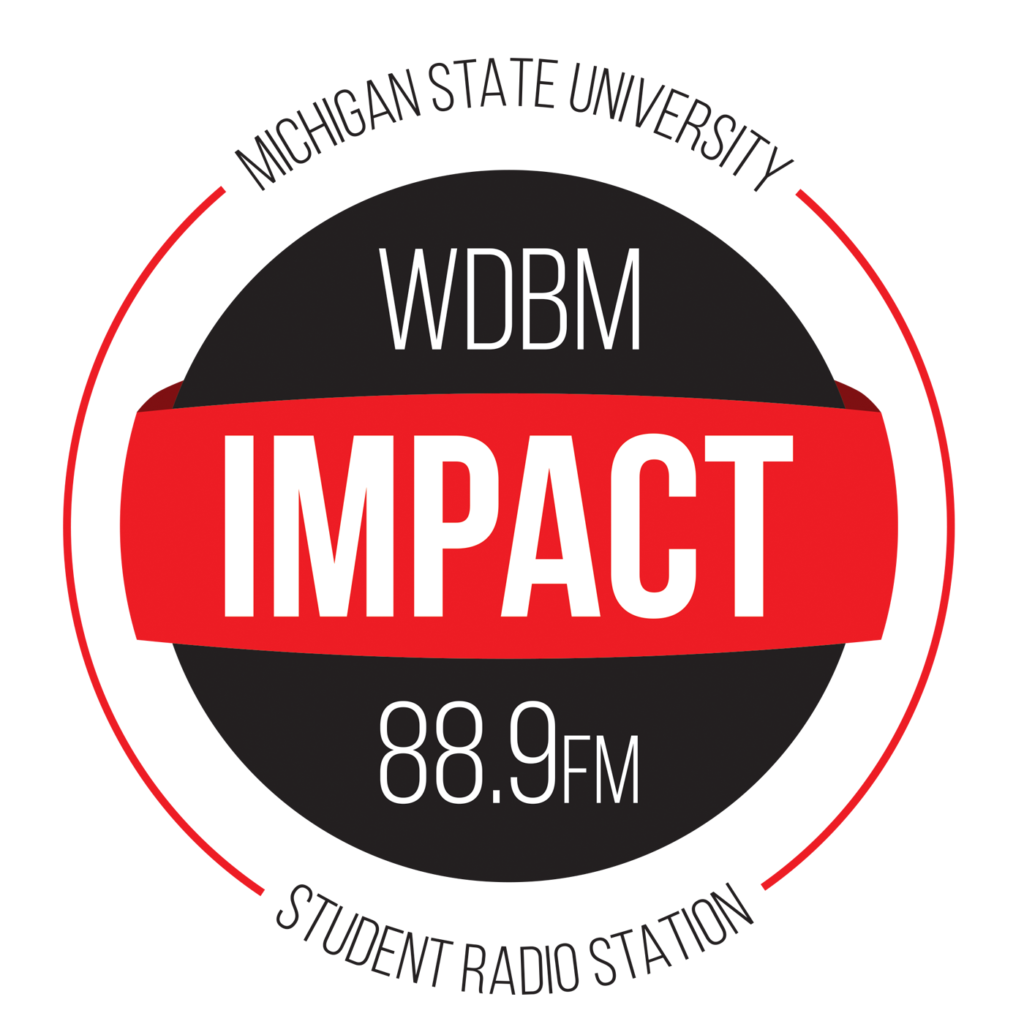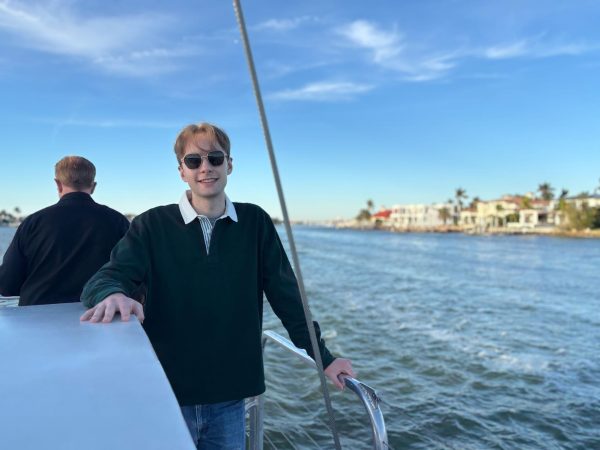EAST LANSING- Hailing from DC, Origami Angel has been a big name for emo fans ever since their breakout album Somewhere City in 2019. The peppy sound and mood they exude on their breakout LP is infectious, and ever since they’ve shown fans they have so much more to offer. I sat down with their guitarist, bassist, and vocalist Ryland Heagy to discuss everything.
“There’re so many different shows and so many different moments it’s just hard to piece together, It feels like a village of moments you know?” Heagy states.
Their influences range like every band, but the energy they draw from is from the most is the house shows they grew up around.
“It was probably seeing this band The Obsessives play house shows … they used to do some really cool stuff … they’re two people and they’re young kids but man they’re as good as any 5 piece band I ever saw, there was so much emotion is every vocal line, guitar line”.
As I spoke to him, you could just hear his respect for those bands playing just for the love of music.
“You just feel the purity of music there, and that’s a lot of the roots of what this band was,” Heagy says.
“Most of the shows we played before the pandemic were just like, a house show. You’d be hard pressed to see a venue show that we played before 2020.”
I asked Heagy more about his influences, this time more musically. He plays an interesting role in Origami Angel, tackling both guitar and bass.
“The way I view it is I have guitar inspirations and I have bass inspirations and what I do is something different than either,” Heagy explains. “I don’t view myself as playing bass and guitar at the same time, I view myself as playing Origami Angel bass guitar.”
Playing Origami Angel bass guitar is exactly what he does. While listening, you can tell how unique his approach is. He and Origami Angel’s drummer, Pat Doherty, have excellent chemistry; they have no problem whipping the listener through dizzying riffs, dazzling vocal melodies, or crushing breakdowns.
“I feel like every song we want it to speak naturally” explains Heagy. “I feel like it’s about the identity of each song. There are songs where the identity is a riff, like Second Best Friend off of The Brighter Days … then on other songs the identity is less about the riff, like, Footloose Cannonball Brothers, there’s not a lot of riffing on that song. It feels very singer-songwriter in a way.”
Heagy notes you don’t just need identity for each song, but a balance over the course of an album.
“You say, ok so we wrote some of this, there’s songs where the identity is a riff, song where the identity is maybe there’s a twist in the middle, or this one’s heavy.”
As the band has matured, Heagy’s writing has as well, expanding from personal stories and anecdotes to broader commentary about politics and ideology. Heagy commented on an early song from Somewhere City: Say Less. Like most of the album, Heagy wrote the song in his teenage years. In the case of Say Less, he returned to it during the recording of the album.
“At some point I came back to the song … and I was like “Oh this is cool, and this feels like a message that I can like could relate to at any point like without remembering the original context.”
Writing songs that relate to such a broad audience is a skill that Heagy has mastered, and he takes those skills and approach to political tracks as well. I asked him about his approach to some of the bands’ more serious political tracks, and his perspective is incredibly unique.
“All these songs have a message of finding peace or a common ground within yourself or with other people and I think inherently that is kind of is political,” remarks Heagy.
“If you look at the history of the band and what we’re doing, there’s not really a lot of outward politics but politics towards acceptance.”
Heagy seems to have a distinct idea of his place as a writer. He doesn’t need to lecture, but his beliefs remain important to him.
“It can be difficult to write because I never want to act like; I don’t know everything, you know? I’m just a guy in a band. But if it fits into that mold of acceptance, it usually fits into the universe of Origami Angel.”
I ended the interview with Heagy asking about the band’s place within the DC music scene and his reverence for the artists that came before him.
“Honestly, the scene in multiple genres has had a really big impact on the world. Whether it be Go-Go music, hardcore, emo, a lot of great stuff has come out of DC,” muses Heagy.
“It does mean a lot for me coming from the DMV area seeing people say we’re really doing something … Like Isaac Newton said: “We all stand on the shoulders of giants.”
“Us being able to do what we do and play these shows doesn’t happen without the people who led these grassroots movements of punk, emo, hardcore in DC. So, it is very moving to be considered in a conversation at all. I know that hard work that went in to create the foundation in which we exist it, it’s important.”









